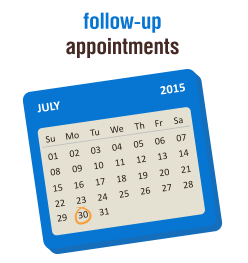
If you have been injured at work in South Carolina, you are likely entitled to financial protection through the workers’ compensation system. This system allows injured workers to recover money for medical expenses, lost wages, and disability benefits, even if your employer didn’t do anything to cause the workplace accident that resulted in the injury.
On-the-job injuries are common – nearly 2.9 million were reported in a single recent year, according to the Bureau of Labor Statistics. These injuries range from relatively minor sprains and strains to more serious health issues.
The laws for claiming and collecting workers’ compensation in South Carolina are complex and require the injured worker to follow certain rules and meet strict deadlines. It is best to get help from a qualified lawyer to help ensure you get all the benefits you deserve.
If you have been injured on the job, here are the six things you should do:
Report Your Injury to Your Employer
Although you have 90 days to report your work injury to your employer prior to a complete bar from receiving help for the same, you should report it as soon as possible. “Many workers do not want to report an injury to an employer in the hopes that it will get better without any medical treatment. However, if time passes and they injury becomes worse, then the reporting issue can become a big problem when you do need help from your employer. It is better to get a report done as soon as you are injured to protect yourself.” Matt Jackson, Head attorney for Joye Law Firm’s workers’ compensation department.
Get Medical Help
 Preferably from a doctor of your employer’s choosing. “You should ask your employer to send you to their workers’ compensation doctor. If they refuse you should seek treatment on your own. Matt Jackson, Head Attorney for Joye Law Firms workers’ compensation department. Going to the doctor should always be your first priority after a workplace accident. You will also need medical records to document your injury. Even if you think your injury doesn’t need medical attention, go anyway. Problems can creep up later on, or a doctor may notice something you haven’t yet.
Preferably from a doctor of your employer’s choosing. “You should ask your employer to send you to their workers’ compensation doctor. If they refuse you should seek treatment on your own. Matt Jackson, Head Attorney for Joye Law Firms workers’ compensation department. Going to the doctor should always be your first priority after a workplace accident. You will also need medical records to document your injury. Even if you think your injury doesn’t need medical attention, go anyway. Problems can creep up later on, or a doctor may notice something you haven’t yet.
Tell Your Doctor Everything About Your Accident and Injury
 Your doctor wants to take care of you and make you better. But the doctor can’t do that if you don’t detail all your symptoms and how the workplace accident occurred. If your workplace injury aggravated a pre-existing condition, make sure to tell the doctor about the prior condition. Having a pre-existing condition does not mean you can’t qualify for workers’ compensation. “It is a major problem when a doctor only focuses on the worst medical issue and does not document all of the medical issues you are having from an injury. Make a list and make certain that every injury or aggravation of any underlying pre-existing condition is documented in writing with the doctor from the very first visit. lso, be persistent in getting treatment for all of your injuries or issues related to the workers’ compensation claim.” Matt Jackson, Lead Attorney for Joye Law Firm’s workers’ compensation division.
Your doctor wants to take care of you and make you better. But the doctor can’t do that if you don’t detail all your symptoms and how the workplace accident occurred. If your workplace injury aggravated a pre-existing condition, make sure to tell the doctor about the prior condition. Having a pre-existing condition does not mean you can’t qualify for workers’ compensation. “It is a major problem when a doctor only focuses on the worst medical issue and does not document all of the medical issues you are having from an injury. Make a list and make certain that every injury or aggravation of any underlying pre-existing condition is documented in writing with the doctor from the very first visit. lso, be persistent in getting treatment for all of your injuries or issues related to the workers’ compensation claim.” Matt Jackson, Lead Attorney for Joye Law Firm’s workers’ compensation division.
Get Help from a Qualified Workplace Injury Lawyer
Workers’ compensation laws are complex and the filing process has important deadlines. Consulting with a South Carolina workers’ compensation attorney will help you through the process and make sure all documents are complete and submitted in a timely manner so you can get all of the compensation you deserve under the law.
Keep Appointments and Follow Doctor’s Orders
 Under workers’ compensation laws, your employer typically has the right to select your treating doctor. The doctor may order certain operations, medications or other treatments. The doctor may also order a reduced work schedule or other changes. It’s an important part of the process to follow all of the doctors’ orders. If you disagree with the treatment plan, you may be able to seek a second opinion. Once a course of treatment is agreed upon, you should follow through with the steps you are supposed to take, including taking all medications and going to all follow-up appointments.
Under workers’ compensation laws, your employer typically has the right to select your treating doctor. The doctor may order certain operations, medications or other treatments. The doctor may also order a reduced work schedule or other changes. It’s an important part of the process to follow all of the doctors’ orders. If you disagree with the treatment plan, you may be able to seek a second opinion. Once a course of treatment is agreed upon, you should follow through with the steps you are supposed to take, including taking all medications and going to all follow-up appointments.





































